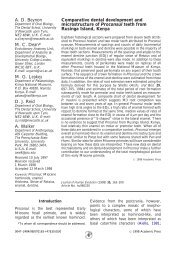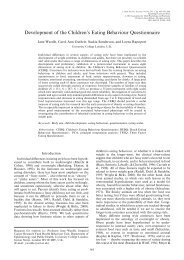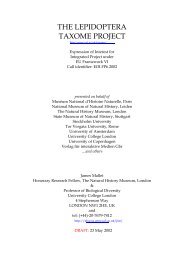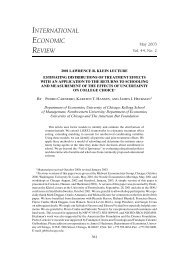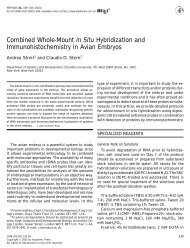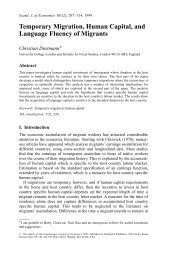The Ambitions of Contract as Promise Thirty Years On ... - UCL
The Ambitions of Contract as Promise Thirty Years On ... - UCL
The Ambitions of Contract as Promise Thirty Years On ... - UCL
You also want an ePaper? Increase the reach of your titles
YUMPU automatically turns print PDFs into web optimized ePapers that Google loves.
<strong>Ambitions</strong> <strong>of</strong> <strong>Contract</strong> As <strong>Promise</strong> 24 August 2012 discussion draft: do not quote or reproduce without permission<br />
Seller contracts to manufacture and deliver 14 gross <strong>of</strong> custom widgets to<br />
Buyer for $10 a gross for use <strong>as</strong> a necessary component in Buyer’s unique<br />
gizmos. Just prior to the date <strong>of</strong> delivery Third Party <strong>of</strong>fers Seller $25 a<br />
gross for immediate delivery to him <strong>of</strong> the widgets. Buyer will have to<br />
pay $15 a gross for the widgets from another manufacturer and will lose<br />
$5 in lost sales for each gross <strong>as</strong> a result <strong>of</strong> the delay.<br />
Economists re<strong>as</strong>on that Seller should sell the widgets to Third Party and<br />
pay Buyer the $5-per-gross difference in the price <strong>of</strong> the replacement widgets<br />
plus the $5 per gross in lost gizmo sales. Buyer will be no worse <strong>of</strong>f<br />
financially than if Seller had faithfully performed, while Seller will be $5 per<br />
gross better <strong>of</strong>f, which is roughly equivalent to the additional value to<br />
society created by Third Party receiving the early delivery <strong>of</strong> the widgets—<br />
the extra value exists because Third Party valued the widgets more than<br />
Buyer. Seller’s move, compared to exact performance <strong>as</strong> promised, is not only<br />
Kaldor-Hicks optimal, in that there is a greater sum total <strong>of</strong> welfare, but also<br />
Pareto optimal, because none <strong>of</strong> the three is worse <strong>of</strong>f and Seller and Third<br />
Party are better <strong>of</strong>f. <strong>The</strong> rule is thus socially optimal because resources are<br />
directed without loss to their highest and best use.<br />
Apart from Seana Shiffrin’s concern that the efficient breach enabled by<br />
the expectation me<strong>as</strong>ure fosters a culture <strong>of</strong> faithless opportunism, there is the<br />
objection raised by several contracts scholars 34 that the advantage reaped by the<br />
34 See Richard Cr<strong>as</strong>well, <strong>Contract</strong> Remedies, Renegotiation, and the <strong>The</strong>ory <strong>of</strong> Efficient Breach, 61 S.<br />
18




